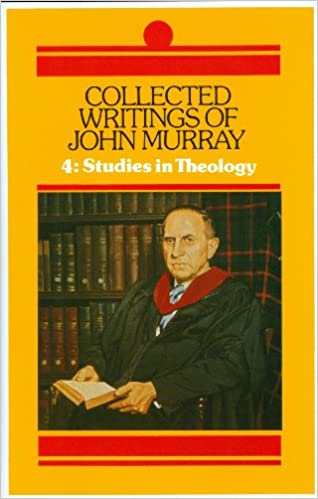A Brief Book Summary from Books At a Glance
by Steve West
About the Author
John Murray was a distinguished theologian, preacher, and author. He served as Professor of Systematic Theology at Westminster Theological Seminary from 1937-1966.
*Note on Summary of Volume 4
This book contains two major parts. Part Two consists of short book reviews, and although they are edifying, we will not be summarizing them since a fair summary would have to present both the main points of the book being reviewed and then Murray’s interaction with it. In many cases, this would require virtually reproducing the review entirely. Part One consists of published essays and articles on theological matters and is summarized below.
Summary
Chapter 1: Systematic Theology
A systematic theology is to set out an orderly account of the truth of God and his relations to men and creation, and as such, it is the most noble of disciplines. Theology draws on all of God’s forms of revelation, but the Scriptures are the most important since they are the Word of God. God speaks in the Scriptures and not merely through them. We need the power of the Spirit to understand the Scriptures fully and experience God’s truth. Through history, the Spirit has been gifting and leading the church into clearer doctrinal understanding, even though the trajectory has not been perfectly straight. Even heresies have sometimes forced the church to improve its formulations. We need to build upon historical theology but recognize that it is not infallible; stagnation in traditionalism or love of novelty are both errors.
Biblical theology as a discipline deals with the historical, progressive unfolding of God’s revelation, whereas the methodology of systematic theology is logical rather than historical. Liberal scholars engage in biblical theology but reject the unity of the Scriptures, but this is a great error. Some argue that God’s revelation comes in his actions in history, and although this is true, that does not contradict his revelatory Word; in fact, his Word is necessary for properly interpreting the events. Even knowing that they are God’s acts requires a concept and knowledge of God. Ironically, liberal approaches to biblical theology also reject most of the historicity of the narratives. To reject Abraham and the covenant is to render the entire history of Israel incoherent, as well as the work of Christ. Good biblical theology is essential for a systematic theology that is faithful to the Scriptures. Systematics teaches and communicates, and since we can’t say everything at once, there need to be logical divisions where material is synthesized after passages are exegeted. Exegesis imparts to systematics the life of the Word. Biblical theology must take into account that God’s special revelation moves along major epochal moments, and this in turn guides exegesis of particular passages (since their epochal location matters). Biblical theology regulates exegesis, and systematic theology coordinates and synthesizes the whole witness of Scripture, which is derived through painstaking exegesis. Systematic theology deals with the finished product of the canon, and it rests on the truth of Scripture’s unity. . . .
[To continue reading this summary, please see below....]The remainder of this article is premium content. Become a member to continue reading.
Already have an account? Sign In
Buy the books

COLLECTED WRITINGS OF JOHN MURRAY, VOLUME 4: STUDIES IN THEOLOGY, by John Murray